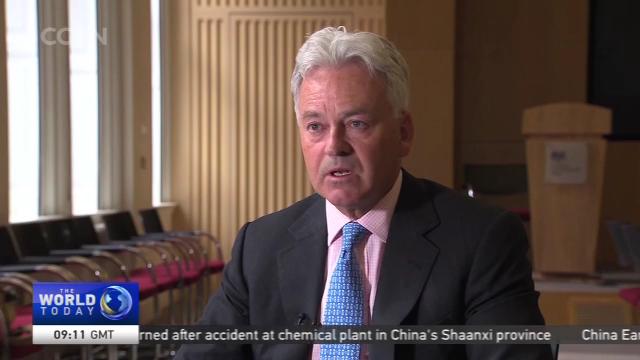
18:08, 02-May-2019
Julian Assange Extradition: Interview with UK Minister Alan Duncan
Updated
18:00, 05-May-2019
02:24

In London, WikiLeaks founder Julian Assange faces a court hearing today over a US extradition request. Washington has charged Assange with conspiring to steal confidential military files and intelligence. Assange's lawyer says Assange can't expect to get a fair hearing under the British system. The remark came after a British judge sentenced Assange to 50 weeks in prison for skipping bail seven years ago. The WikiLeaks editor-in-chief has called the sentence an 'outrage' and says the verdict will be 'a question of life and death' for Assange which runs afoul of journalistic principles. CGTN's Jamie Owen sat down with UK Minister Alan Duncan, who oversaw Assange's arrest.
JAMIE OWEN CGTN REPORTER "You were reportedly responsible for getting Julian Assange out of the Ecuadorian embassy. Do you have any regrets about that decision?"
ALAN DUNCAN BRITISH MINISTER OF STATE FOR EUROPE AND THE AMERICAS "Regrets? I'm delighted! He should have been out years earlier – he was just there rotting, by his own choice. It's a pity that the previous Ecuadorian government ever gave him asylum because he was able to get in And the new government with whom we've been working very closely for a few months have been very sensible and we worked out all the legalities of making sure that we were consistent with the Vienna convention in Being invited into the embassy, and that the police were able to do what they had to do. I think frankly if even for his own health it was absolutely the right thing to do. So far from having regrets, I'm definitely delighted that We've got this person out of being holed up in two rooms in the middle of London."
JAMIE OWEN CGTN REPORTER "And what should happen to him next?"
ALAN DUNCAN BRITISH MINISTER OF STATE FOR EUROPE AND THE AMERICAS "Well that's up to the courts, that's up to the lawyers. First of all, he has gone in to a prison in London because he is in breach of his bail conditions. So that UK domestic process will determine how long he remains in prison. If there's an extradition request that will be determined by lawyers and the court – not by me as a politician. So whatever the law and the process of justice delivers, that's what'll happen."

SITEMAP
Copyright © 2018 CGTN. Beijing ICP prepared NO.16065310-3
Copyright © 2018 CGTN. Beijing ICP prepared NO.16065310-3